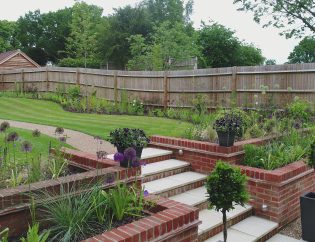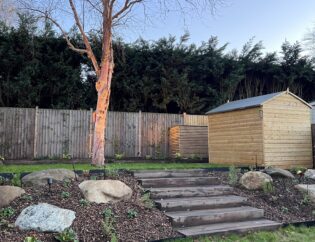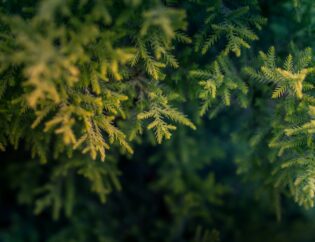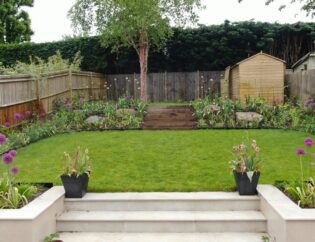
Small trees for gardens
Small trees can add a lot of character and beauty to your garden. You can use small trees in your garden to create focal points, add shade, and provide privacy. But small trees offer practical benefits too. They provide food for wildlife, stabilise soil, and clean the air.
In this post, we'll look at the best small trees for gardens/ We'll also give you some tips on choosing and caring for them.
The advantages of small trees in your garden
One of the main advantages of using small trees for gardens is their versatility. You can use them to create a focal point, or to provide shade over a seating area or walkway. Small trees are also perfect for adding interest to an overlooked corner of a larger garden. They can be easier to maintain than larger trees, especially when it comes to pruning and shaping.
Small trees attract wildlife to your garden. Many small trees produce fruit or nuts that birds and animals love to eat. They also provide shelter and nesting sites for birds and other creatures.
Small trees can help to stabilize soil on slopes or hillsides, preventing erosion and reducing the risk of landslides. They also offer environmental benefits. For example, cleaning the air and reducing the “urban heat island” effect. Trees absorb carbon dioxide and other pollutants from the air, and release oxygen as a by-product of photosynthesis. This helps to improve air quality and reduce the impact of climate change. Additionally, trees provide shade that can help to reduce temperatures in urban areas, where concrete and asphalt absorb and radiate heat.
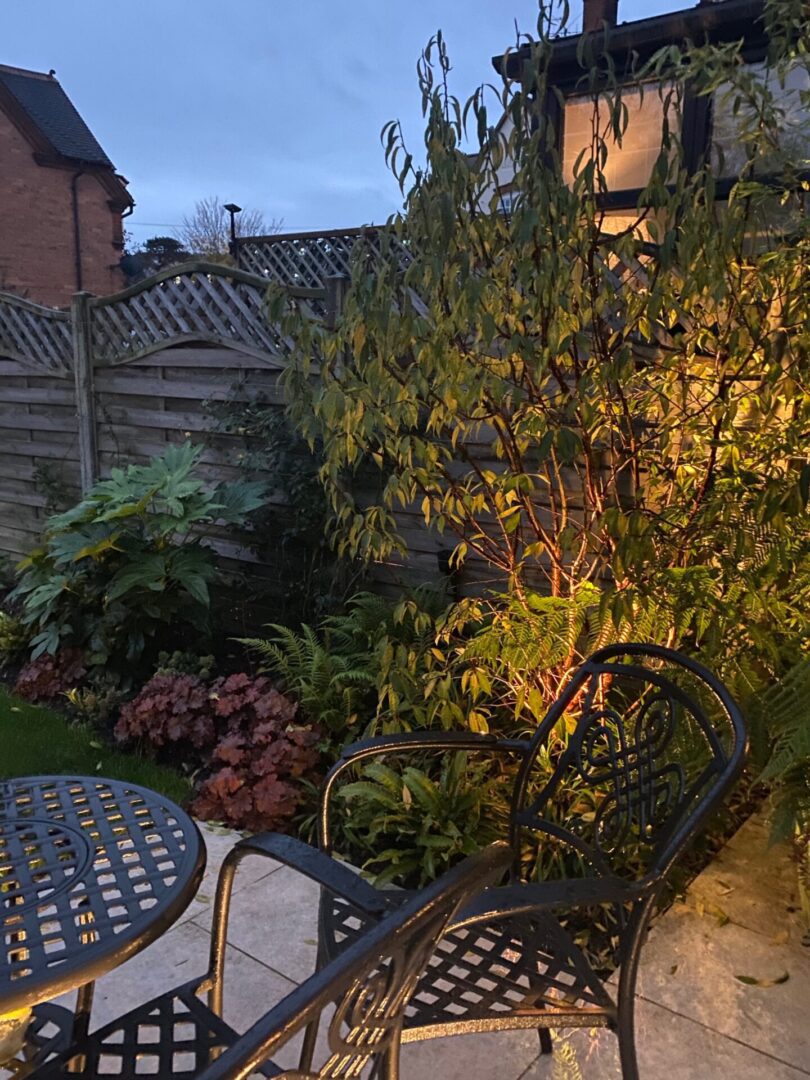
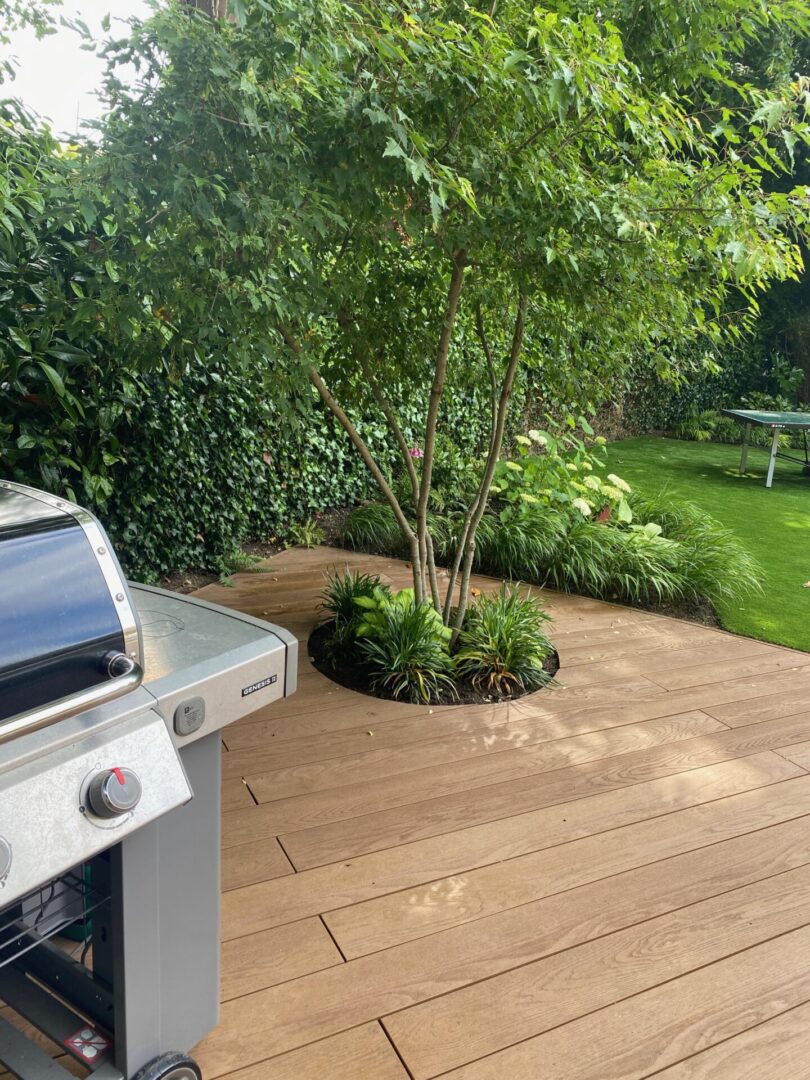
Choosing small trees for gardens
Growing conditions:
It's important to think about the growing conditions in your garden when selecting your small trees. Different trees have different soil, light, and water requirements. So choose trees that are well-suited to your garden's conditions.
Also, consider the size of the tree at maturity. While small trees are generally easier to manage than larger varieties, some can still grow quite large. Make sure the tree you choose is appropriate for your available space.
Seasonality:
Another factor to consider when choosing small trees for gardens is seasonality. Some trees are deciduous, meaning they lose their leaves in the autumn. Others are evergreen and retain their leaves year-round.
Deciduous trees can provide beautiful autumn colour, but you'll need to rake up the fallen leaves. Evergreen trees can provide year-round interest, but they won’t provide as much seasonal variation.
Ornamental qualities:
Finally, consider the tree's ornamental qualities. Small trees come in a variety of shapes and sizes, from upright and columnar to spreading and weeping. Some have showy flowers or brightly coloured berries. Others have interesting bark or foliage. Multi-stem trees have more branches and foliage, making a bigger visual impact, as well as providing more shade.
Think about the look that you are trying to achieve for your garden, and choose a tree that will complement your existing plantings.
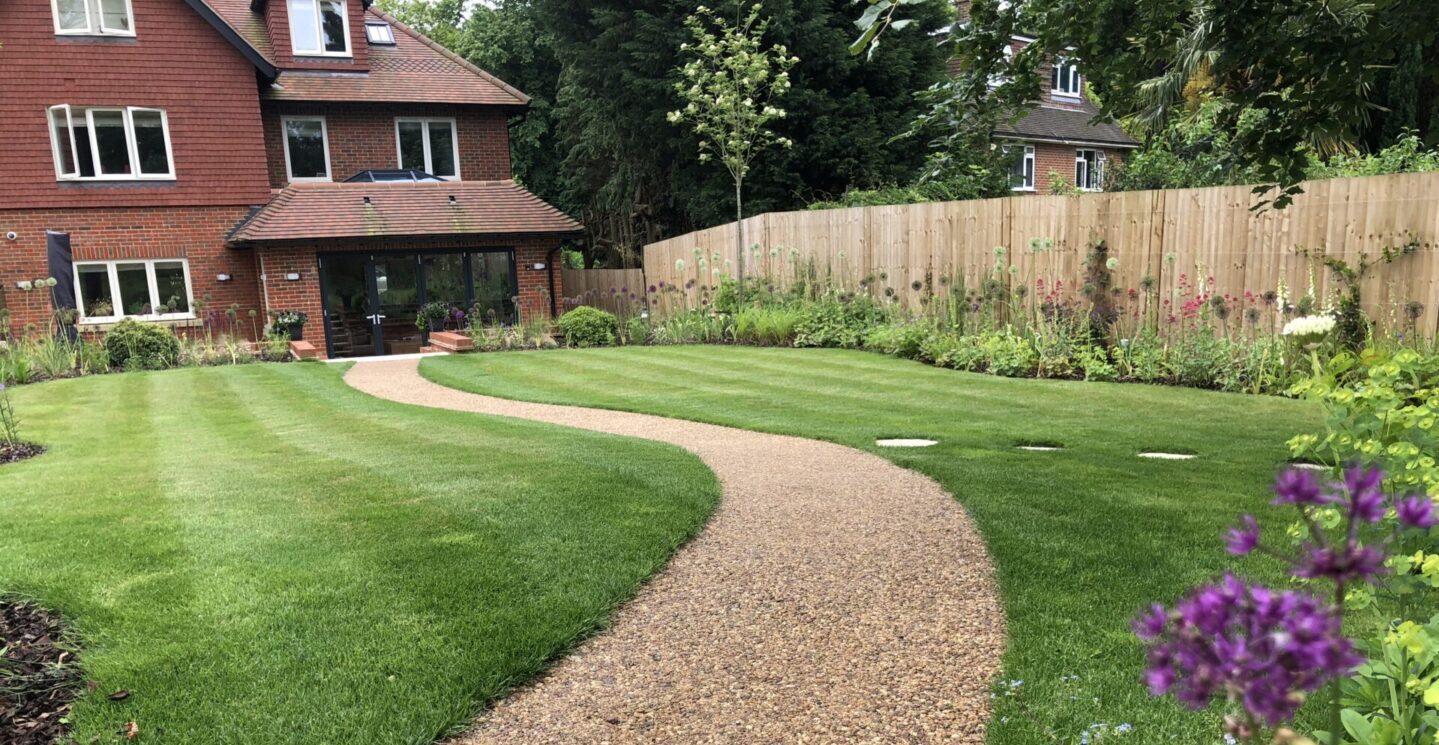
Caring for small trees
You'll need to care for your small tree properly to ensure its health and longevity. Water your tree regularly, especially during dry spells, and fertilize to promote growth. Be sure to mulch around the base of the tree to help retain moisture and prevent weeds.
You'll also need to prune your tree regularly. Pruning helps to shape the tree and remove any dead or diseased branches. It's best to prune small trees in the late winter or early spring before new growth begins. Use clean, sharp pruning shears and make clean cuts to avoid damaging the tree.
Finally, be mindful of any pests or diseases that may affect your small tree. Regularly inspect the tree for signs of insect infestation or disease, such as holes in the leaves, discolouration, or wilting. If you notice any problems, take action promptly to prevent further damage. There are many natural remedies and treatments available for common tree pests and diseases. Do some research or consult a professional if you are unsure how to proceed.
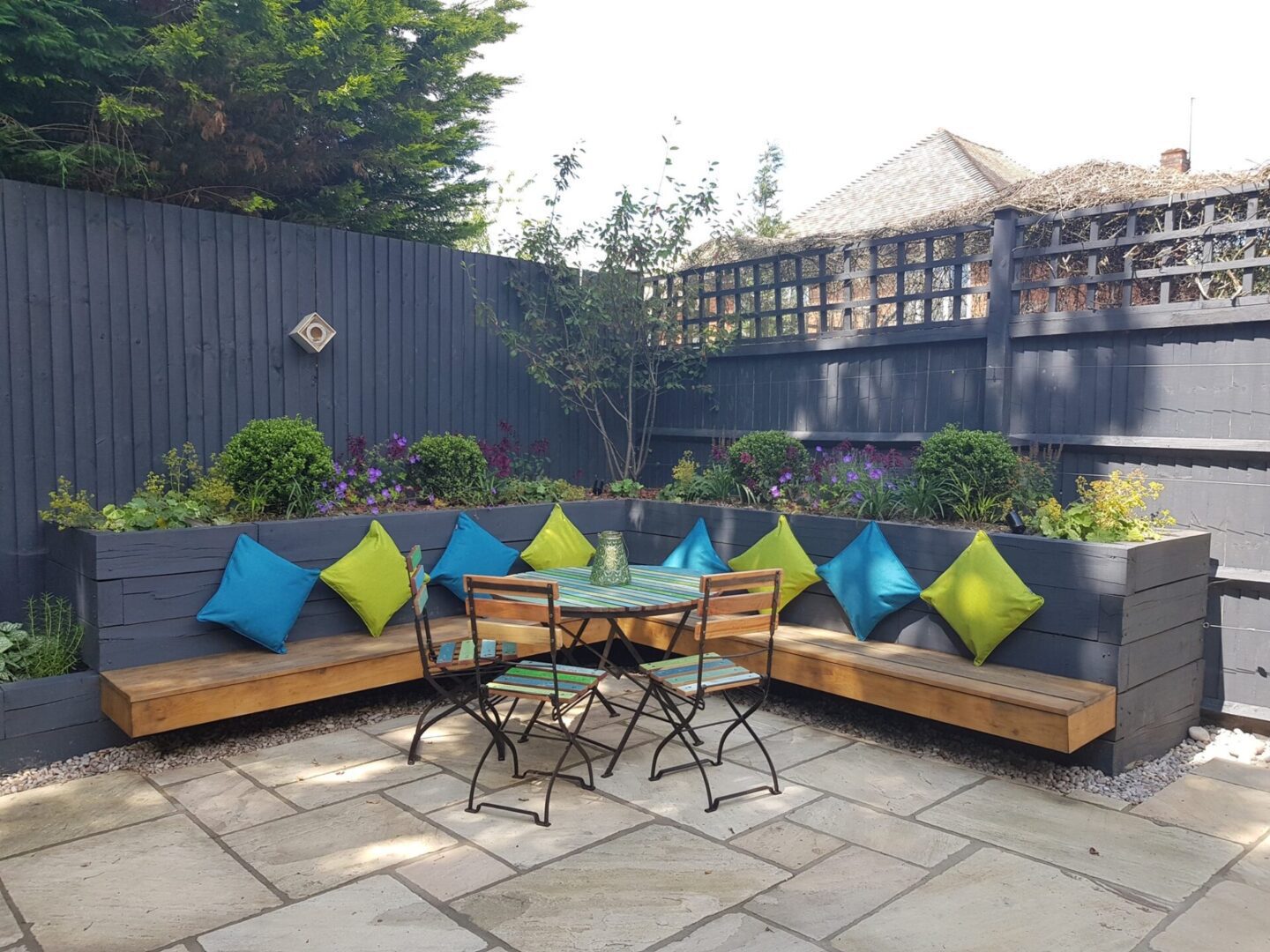
Types of small trees for gardens
Here are some of our favourite varieties of small trees for gardens:
Amelanchier Lamarki
Also known as Serviceberry or Juneberry, Amelanchier Lamarki is a small deciduous tree. It is perfect for domestic landscaping projects due to its multi-seasonal interest. In spring, it bursts into profuse clusters of white flowers, followed by edible purple berries in summer that attracts wildlife. Its leaves turn brilliant shades of orange and red in fall, adding a stunning display of colours to the landscape. Amelanchier Lamarki is also relatively low-maintenance, making it an ideal choice for small gardens or yards.
Acer Griseum:
Acer griseum, commonly called Paperbark Maple, is a small, slow-growing tree that is prized for its unique peeling cinnamon-coloured bark. This unusual bark adds texture and visual interest to the landscape. Its trifoliate leaves turn from green to shades of red and orange in the fall, providing a brilliant display of autumn colours. Acer Griseum is suitable for domestic landscaping projects as it adds a distinctive and eye-catching focal point.
Malus Evereste:
Malus Evereste, also known as Crabapple, is a small deciduous tree that is highly regarded for its profusion of spring blooms and attractive fruit display. In spring, it produces masses of pink buds that open into fragrant white or pink flowers, attracting pollinators. In fall, it bears small, fruit in shades of red or yellow that persist into winter, providing food for birds and adding visual interest. Malus Evereste is a versatile tree that is well-suited for domestic landscaping projects as it adds beauty, wildlife value, and seasonal interest to gardens or landscapes.
Betula utilis jacquemontii:
Betula utilis jacquemontii, commonly called Himalayan Birch or White-barked Birch, is a small deciduous tree known for its striking white peeling bark. This adds a touch of elegance and beauty to a garden. Its slender branches and delicate foliage create a graceful silhouette that stands out in the winter landscape. Betula utilis jacquemontii is suitable for domestic landscaping projects as it adds year-round visual interest, especially during the winter months. It's ideal for creating a focal point or as a backdrop for other plantings.
Cercis siliquastrum:
Cercis siliquastrum, commonly called Judas Tree, is a small deciduous tree known for its spectacular display of pink flowers in early spring, before its heart-shaped leaves emerge. The vibrant flowers bloom directly on the trunk and branches. Cercis siliquastrum is suitable for domestic landscaping projects as it adds a burst of colour to the landscape, particularly during the early spring when many other trees are still dormant. Its small size and attractive form make it a great choice for smaller gardens or as an accent tree in larger landscapes.
Magnolia Stellata:
Magnolia Stellata, commonly known as Star Magnolia, is a small deciduous tree that is known for its stunning star-shaped flowers and compact size. In early spring, it produces large, fragrant, white or pink flowers that cover the branches, creating a breathtaking floral display. Its dark green leaves provide an attractive backdrop for the flowers. Then in autumn, they turn yellow, adding to the tree's overall appeal. Magnolia Stellata is suitable for domestic landscaping projects as it adds a touch of elegance and beauty to gardens or landscapes, particularly as a focal point or specimen tree. It is well-suited for urban or small-space gardens due to its compact size.
By using small trees in your garden, you can create a beautiful and sustainable landscape that provides both aesthetic and practical benefits. Whether you are looking to create a focal point, add shade, or attract wildlife to your garden, there is a small tree out there that will be perfect for your garden.


